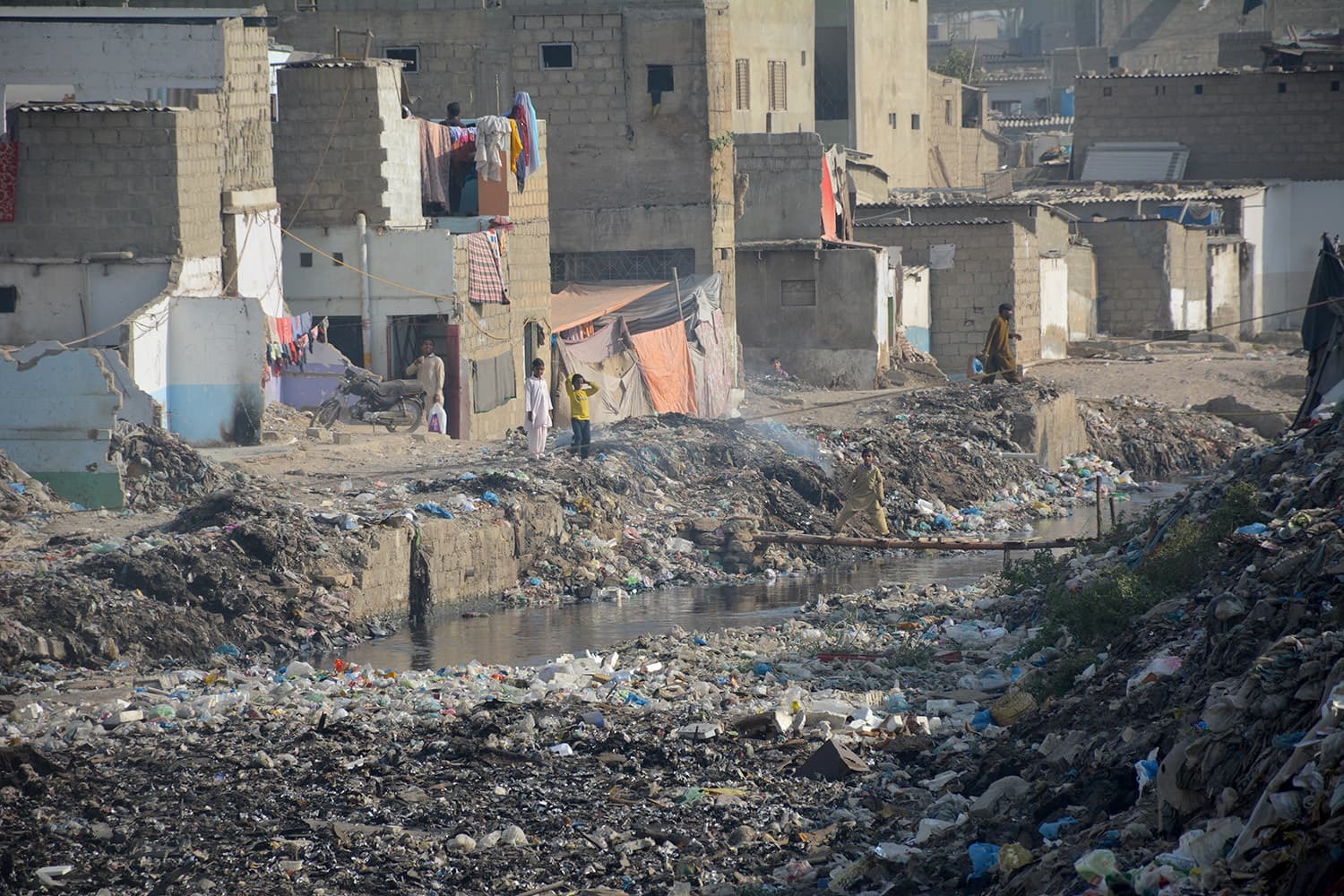KARACHI: The Supreme Court has directed the federal and provincial governments to consult town planning professionals as well as city authorities before carrying out an exercise to relocate people from illegally set up katchi abadis to appropriately constructed buildings with all basic amenities in the city.
A three-judge SC bench, headed by Chief Justice of Pakistan Gulzar Ahmed and comprising Justice Faisal Arab and Justice Sajjad Ali Shah, asked both the governments to duly consult city representatives and also obtain the input from planning professionals to relocate the residents from katchi abadis.
These directives were issued in a 40-page detailed order of the apex court that conducted two-day proceedings at the SC’s Karachi registry on Feb 6 and 7 in the matters related to illegal encroachments in the metropolis.
During the proceedings, Attorney General Anwar Mansoor Khan as well as Advocate General Sindh Salman Talibuddin made a categorical statement before the bench that the city of Karachi was facing serious issues and the most crucial one was that of katchi abadis.
It was stated that these katchi abadis occupied major part of the metropolis, including important and expensive chunks of land in the very heart of the city.
SC releases detailed order of two-day proceedings on city’s encroachments issue
However, the bench was informed that the federal as well as the provincial governments had already started planning to relocate the residents of these katchi abadis in appropriately constructed buildings with all basic amenities of modern life and create open breathing spaces in the city for the betterment of the environment and the people.
“We direct that while undertaking such exercise, the city representatives be duly consulted and at the same time professional input shall also be obtained,” stated the court order.
The AG Sindh informed the bench that the Sindh government had already constituted a committee of renowned town and city planners, who had started their work to give suggestions on the issue of illegal constructions and rehabilitating the affected people in a decent manner.
He added that the committee’s report had already been received by the Sindh government, but had not yet been finalised.
The CJP asked the advocate general to ensure that the initial report, which had been received from the town and city planners, was filed in court and also published in newspapers and broadcast on television so that the public may know about it and given their input.
He said that the report shall be discussed by the persons who can make the proposed plan more understandable to the public.
The CJP said: “Be that as it may, to the extent of what is noted above, let the compliance be made. In this regard, further proceedings in the case were adjourned till the next session.”
Blue Line project assigned to KIDCL
Saleh Ahmed Farooqi, the chief executive officer of the Karachi Infrastructure Development Company Limited (KIDCL), appeared before the bench and stated that the construction work on a Green Line section had been completed in 2017.
However, for the Blue Line section, Mr Farooqi said, the work was assigned to Bahria Town, which had since backed out and now the work had been entrusted to KIDCL.
He further stated that the work on the entire project was likely to be completed by the end of the current year and the transport facility would become operational by March 2021.
The bench ordered: “We may note that while this company is doing construction work, it shall not be allowed to occupy or to make construction or to interfere with any of the existing parks, playgrounds or amenity spaces meant for the public use.”
The bench further ordered: “If any additional land is required by them for the project, the same shall be acquired by it from the relevant quarters, in accordance with law but without effecting any of the amenities noted above.”
SC to take up KCR issue on 21st
The bench extensively heard the matter regarding the Karachi Circular Railway as well as local train service.
During the hearing, the secretary of the Pakistan Railways made a statement that the Executive Committee of the National Economic Council (Ecnec) had taken a decision of handing over the operation and running of the KCR and the Karachi local train service to the Sindh government. But when asked he was unable to place a notification of the Ecnec in court.
Therefore, the bench directed the PR secretary to ensure filing of the said decision before the bench and adjourned hearing till Feb 21.
10-year record of SBCA-approved buildings sought
The bench also directed the Sindh chief secretary to immediately take over the affairs of the Sindh Building Control Authority (SBCA) and deal with the same as per the law.
He was given two weeks to submit a report about all the approvals of the buildings that had more than ground plus two floors granted by the SBCA across Karachi in the last 10 years, along with their addresses, names of owners, present status of such buildings and names of the sanctioning officials of the SBCA.
Earlier, the bench directed the chief minister to immediately remove acting director-general of the SBCA Zafar Ahsan and other top officials observing that it seemed that the illegal constructions were being allowed by the officials of the authority by indulging in bribery and other illegal activities.
It also noted that the police department and other government officials also gave protection to these activities.
Published in Dawn, February 20th, 2020














































